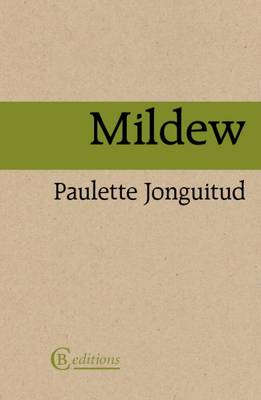 Increasingly, I find that the novels I respond to most strongly are those that create their own seamless reality. I’m not talking here about the meticulous re-creation of a historical period, nor the ‘world-building’ of genre fantasy and science fiction, but something that seems to me more fundamental. I mean those times when the language of fiction unites with its subject: then, there’s nothing between me and the work – and I don’t know how far it might reach.
Increasingly, I find that the novels I respond to most strongly are those that create their own seamless reality. I’m not talking here about the meticulous re-creation of a historical period, nor the ‘world-building’ of genre fantasy and science fiction, but something that seems to me more fundamental. I mean those times when the language of fiction unites with its subject: then, there’s nothing between me and the work – and I don’t know how far it might reach.
Here, for example, is Mildew, a short novel by the Mexican writer Paulette Jonguitud (translated by the author from her Spanish original, and now published by the ever-excellent CB Editions). It’s a novel that creeps through you, rather like the mildew which begins growing on its narrator Constanza’s body the day before her daughter’s wedding. I didn’t realise until I started thinking back on the novel just how much it had infected my thoughts. Similarly, when Constanza sees the first spot of mildew, it seems a relatively minor inconvenience:
I don’t like surprises and since the last one had been an affair between my husband and my niece, I was not feeling in the mood for another one (pp. 4-5).
Immediately this remark implies an equivalence between the physical changes that Constanza is experiencing and the events of her life. There’s still more conflation when she describes coming across her husband and niece (also named Constanza):
It was after ten that night. I walked in silence through the dining room. I assumed everyone was upstairs. And then I found Felipe and Constanza sitting at the table, their heads close together as though they were sharing a secret, a bottle of wine between them. I did not need to see much more. Those few seconds were enough for me to know that I didn’t belong there. The furniture seemed to know I was there and feel ashamed, I heard the table creak and saw the chairs wanting to tip over to one side. The edge of the wine glasses, my glasses, seemed to shrink when touched by those lips (p. 12).
This paragraph brings in memory, the physical space of Constanza’s house, and (perhaps faulty, but who’s to say?) perception. Mildew’s narrator ranges far and wide through past and present, all without leaving the house – but there’s something claustrophobic about the experience of reading all this range. Maybe it’s the knowledge of how precarious it all is: Constanza makes no secret of how fallible her memory can be; there’s plenty that she doesn’t know, for example about her niece as a person; then there are her visions, such as the mirrors that reflect old memories and occasionally talk back.
There’s no room here for the safely real to end and the imaginary to begin; this is what we feel too as we read Mildew, and start to wonder what sort of grip Constanza has on her own space, her own story. And we might wonder that with dread, because we sense that, when Constanza’s grip loosens, ours can only do likewise.
23rd June 2015 at 2:01 pm
Completely gripping review. Thank you.
25th June 2015 at 11:48 am
Cheers, Vicky!
24th June 2015 at 8:48 pm
The only thing that had put me off getting this was the cost per page (it is very short) but it sounds like it’s worth it.
25th June 2015 at 11:56 am
Grant, I hear you on that (I’ve felt that many times about other books in the past). All I can say is that I’ve read plenty of longer books which were far less value for money per page than this one.
14th July 2015 at 2:23 pm
Nice review. Cost per page is I think a very dangerous metric; it’s what’s led to the bloated state of the fantasy genre where readers judge value by length and so get flabby fiction which bloviates pointlessly on.
Better a good 10 page short story than a bad 1,000 page novel, even if they are the same price.
17th July 2015 at 1:34 pm
Thanks, Max. i used to be more of a ‘cost per page’ person (back when I read a lot of fat fantasy novels – go figure). My mind changed because what I want from books changed: I don’t need raw length any more, but a particular depth and character of reading experience – and I can’t measure that by page count, as a book like Mildew demonstrates.